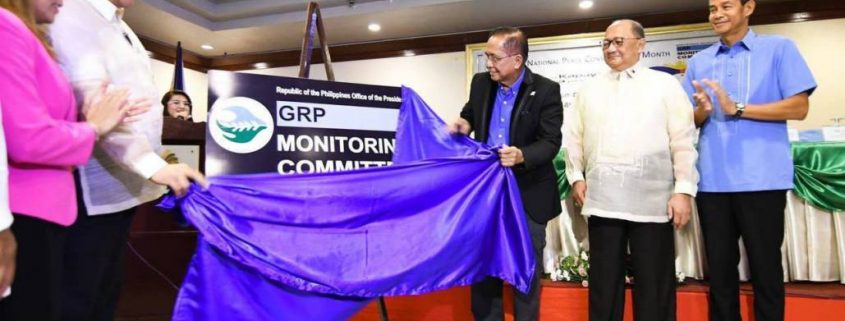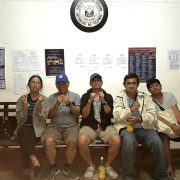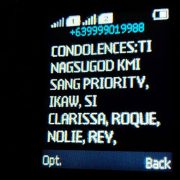Punish rights violators, GRP urged
Rights group Karapatan urged the Rodrigo Duterte government to investigate and prosecute human rights violators instead of engaging in “token gestures” following the opening of a monitoring station in Davao City Friday.
Saying that while the opening of a Davao station to receive reports of rights violations is welcome, Karapatan added the government should do more than “superficial moves” to respond to and address the numerous complaints against State security forces.
“It should investigate, establish accountability and punish State actors who have committed human rights violations,” Karapatan secretary general Cristina Palabay said.
“In short, it should do its job, instead of [engaging] in token gestures,” she added.
Officials led by Presidential Peace Adviser Secretary Jesus Dureza attended the opening of the first Government of the Republic of the Philippines (GRP) compliance monitoring station under its Comprehensive Agreement on the Respect of Human Rights and International Humanitarian Law (CARHRHIL) with the National Democratic Front of the Philippines (NDFP).
The station, to be housed at the Integrated Bar of the Philippines building in Davao City, is the first to be opened by the Manila government since it signed the CARHRIHL in March 1998.
It will receive reports and complaints of “non-compliance” of the provisions of CARHRIHL in 10 conflict-affected regions across the country and endorse it to the Joint GRP-NDFP Monitoring Committee (JMC).
The Office of the Presidential Adviser on the Peace Process (OPAPP) did not mention the nine other regions in their statement on the event.
It also failed to identify the source of funding of the stations.
GRP Panel Member Antonio Arellano said the setting up of monitoring stations is a “unilateral action” on the part of the Philippine government.
“The document (CARHRIHL) promotes the rights of the Filipino people. It humanizes the ongoing armed conflict. It seeks to protect both combatants and civilians against violations of human rights and international humanitarian law,” Arellano explained.
NDFP chief negotiator Fidel Agcaoili for his part said they were invited to co-sponsor and attend the event, but refused.
“[The monitoring station] is not mentioned in the CARHRIHL. What the CARHRIHL mentioned was a Joint Secretariat (JS) office, which is the one we have in Cubao,” Agcaoili said.
“The monitoring station is strictly a GRP initiative,” he clarified.
A JMC-JS Office opened in July 2005 at the Immaculate Conception Cathedral in Cubao, Quezon City which the GRP has practically abandoned after several years of operations.
The Teresita Deles-led OPAPP under the Benigno Aquino government petitioned the Royal Norwegian Government to stop funding its operations but failed after the NDFP rejected the move.
The NDFP Nominated Section of the JS still actively holds office there, keeping 6,397 complaints of human rights violations, 4,471 against the GRP and 1,926 against the NDFP as of May 23, 2016. # (Raymund B. Villanueva)







